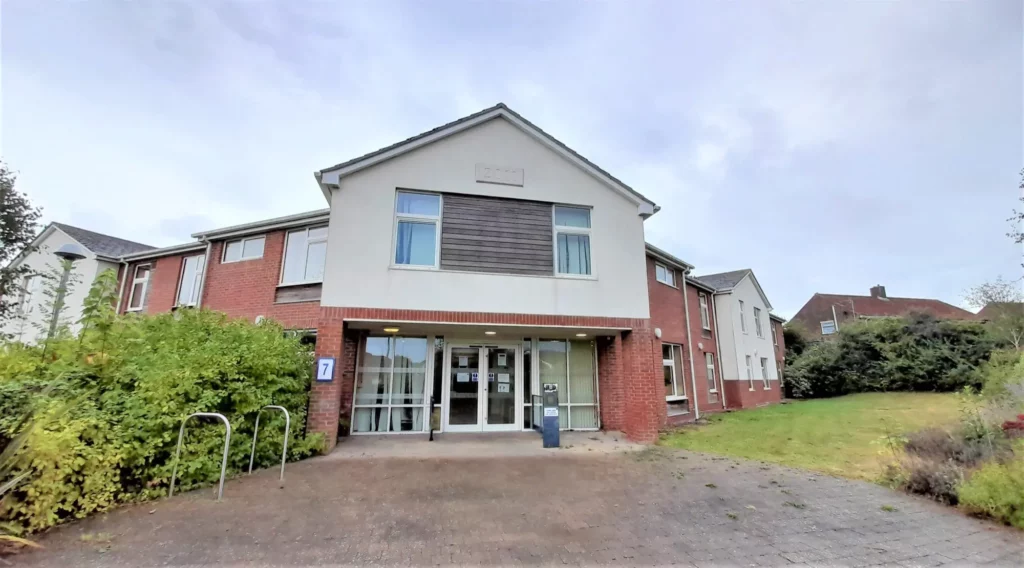Extra care (sometimes referred to as assisted living) offers adapted accommodation with 24-hour care support on-site should you need it. Schemes are made up of self-contained apartments or bungalows that you can purchase or rent; each fitted with support aids and emergency alarms.

With extra care, you can continue to live in a home of your own knowing that care and support is available from a professional care team nearby. This makes it the ideal solution for individuals who are able to live independently but have an increasing level of support required.
Home care support can be requested at any time, with visits being as little as 30 minutes a day. Our highly-trained care workers can support with personal care, help with household tasks and provide companionship.

Our extra care schemes
We provide home care in our extra care housing scheme in Gloucestershire. Our services are rated Good by the Care Quality Commission and Excellent on Trustpilot.

10 things to consider when choosing extra care housing

CQC information
Unlike sheltered housing, extra care (or assisted living) housing is regulated by the Care Quality Commission (CQC). They inspect the facilities and regulate the care provided. Their ratings can be found on the CQC website.
Funding
When moving to an extra care housing scheme, there are three main costs you will need to consider. They are: rent/mortgage, service charges and care. You may be able to cover some of this cost through housing benefit or other benefits available. Talk to a care expert today to find out more.

Frequently asked questions
The eligibility criteria will depend on the scheme but residents usually need to be over 55 or 60 to be eligible to move into extra care housing. In addition, you will need to be able to live safely on your own with, or without, some support.
If you think extra care housing might be the right option for you, contact your local council and ask for a free care needs assessment. This will determine what care you need and which care options best suits you. Although a care needs assessment is only required if applying for a council-run extra care scheme, it is recommended that you get one even if planning to buy or rent from a private housing provider.
When you move into extra care housing, you benefit from two key features: your own secure accommodation, and on-site care and support.
Each self-contained apartment or bungalow usually includes a kitchen, bathroom, bedroom and living room and will have adaptations designed to assist you such as handrails, level access shower and emergency alarm installed. Options for lower worktops for wheelchair users may also be available.
Outside of your apartment are a range of communal facilities for you to utilise. While larger schemes will include a hairdressers, restaurant and even a GP practice, most extra care housing schemes will have lounges, activities rooms and gardens for residents to enjoy.
The type of care you receive will be entirely tailored to you. This could be a 30-minute check in call each week, or more ongoing support with washing and dressing, managing medication, and household tasks.
Moving into extra care housing is the ideal solution if you are looking to maintain your independence at home but need some support. The key benefits of extra care housing are:
– Enables you to continue living at home for longer
– Gives you your own space and privacy
– On-site care support for any emergency
– Flexible care and support for when you need it
– Opportunities to socialise with others
– Shared communal facilities such as lounges, restaurant and gardens
The process for moving into an extra care property is based on whether you are purchasing or renting. If you are purchasing your home, you can approach the housing provider directly however, in most cases, those wishing to rent will need to be nominated by their local authority.
You can buy an extra care property even if you don’t currently need care. Many extra care residents buy their home in preparation for the future; ensuring that, when they do need care, it is already in place. If you buy through shared ownership, you can purchase from 25% to 75% of the full market value of your home. You may pay a rental change for the unpurchased share and a service charge for the upkeep of the building and grounds in addition to utility and insurance bills.
If you would like to rent a property, you can put your name forward by contacting your local authority directly, or by contacting the scheme you are interested in.
If you live in an extra care scheme, home care visits will be provided by the on-site care team. These are often commissioned by the local authority in partnership with the housing provider. Before arranging care, it is important to find out which care company provides care to your scheme.
If you have identified Agincare as the care provider, we can help you set up care immediately. All you have to do is call our team of expert care advisors, or talk to your local office team. They will listen to your needs and wishes before booking in your free, no obligation care assessment to determine what level of support you need. Once this is confirmed, you are all set to go. In addition to regular care visits, you will also receive ongoing support from a designated Care Coordinator who will be your point of call for any questions or concerns.
The support available to you will depend on your personal and financial circumstances. If you already live in a council property for example, you may be able to transfer to one of their extra care schemes. For rented properties, you usually need to be nominated by your local authority. They may also conduct a financial assessment to determine whether you are eligible to receive support.
If you are purchasing a property you are still eligible to request support from your local authority. Again, a financial assessment will enable them to determine whether financial support to cover the cost of your care is available. In England, you might be eligible for the council to pay towards the cost of your social care if you have less than £23,250 in savings (excluding the value of your home).
Extra care housing is specialist housing for older people who are able to live independently but need some level of support. It is similar to sheltered housing but offers additional help with personal care, household chores, medication management and more. Due to its flexible care options, it is the ideal solution for people who want to stay in their own home even as their care needs change.
Care homes on the other hand provide around the clock residential support from a team of care workers who are on hand 24/7. Whereas in extra care you have your own self-contained home that you own, care homes rent you a room in a shared property with communal spaces for dining and relaxation.
For many, extra care bridges the gap between home care and care home living. It allows you to continue living in a home of your own but with the necessary adaptations and level of support you need to maintain independence.
Whether you are purchasing or renting an extra care property, you are encouraged to furnish and decorate your new home. This is your space to make your own. Add furniture, hang your favourite family photos, and fill it with all those mementos of treasured memories; the space is yours.
For cosmetic or more serious changes, it is important to consult the housing provider who will be able to advise on what you can do and even offer support with the work or, if to improve your mobility and access to the home, find funding.











